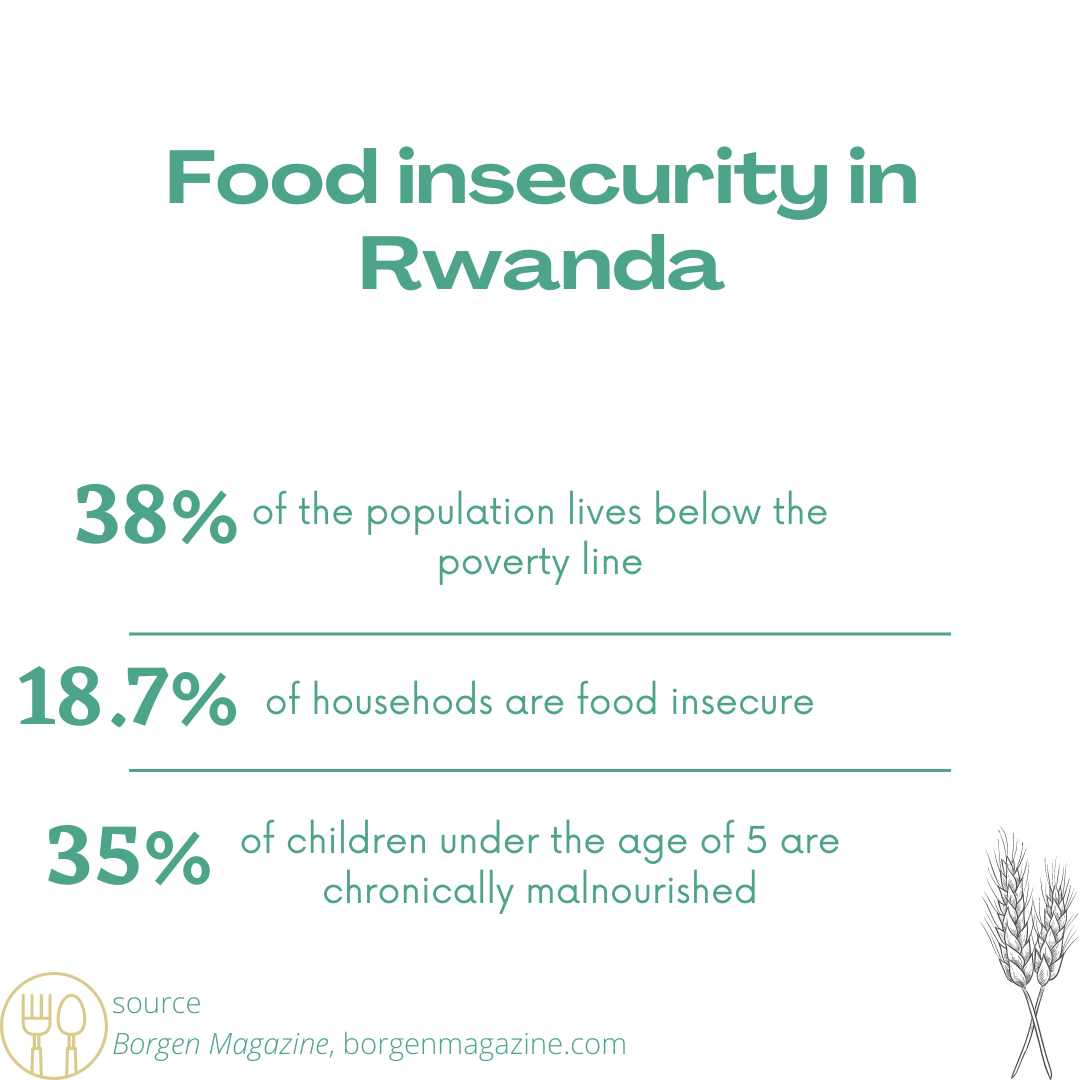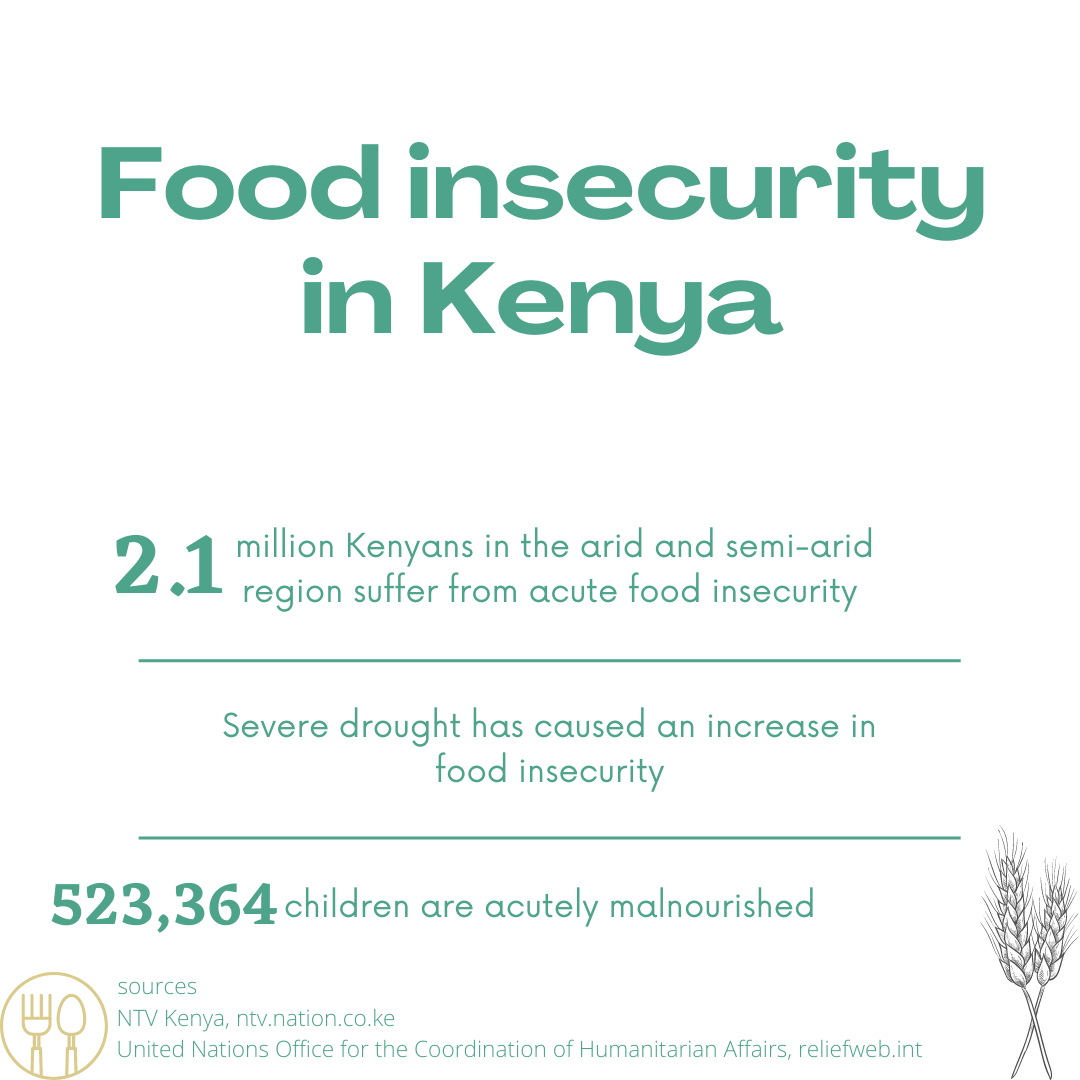Editor’s Note: This story was written when Emma Keesling was a senior. She earned her bachelor’s degree in biological engineering: food and biological process engineering in 2023.
“I want everyone around the world to be able to grow their own food efficiently and sustainably in a way to provide for their family with good nutrients for growth and a healthy life,” said Emma Keesling, a senior biological engineering: food and biological process engineering major from Modoc, Indiana.
Keesling has traveled internationally to address food security issues. She has even been involved in research to find ways to improve fortified flour production in Rwanda. As a part of this research, she looked at nutritional deficiencies in children under 5 and in women of childbearing age in east Africa.
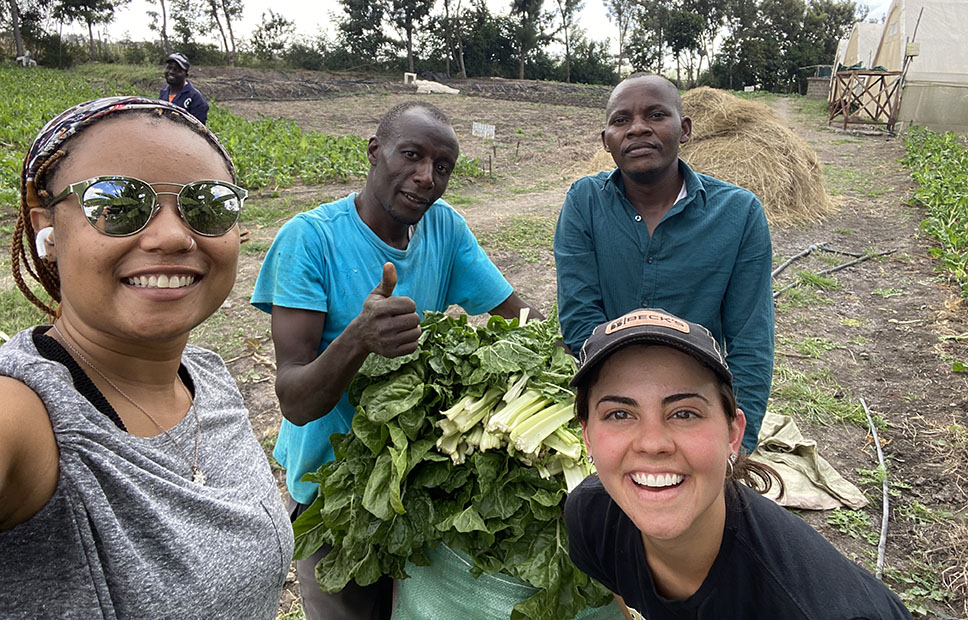 Emma Keesling (bottom right) is passionate about improving food security for people around the world. The senior biological engineering: food and biological process engineering major from Modoc, Indiana, has traveled to Kenya and has researched conditions in Rwanda as part of her efforts. Photo provided by Emma Keesling.
Emma Keesling (bottom right) is passionate about improving food security for people around the world. The senior biological engineering: food and biological process engineering major from Modoc, Indiana, has traveled to Kenya and has researched conditions in Rwanda as part of her efforts. Photo provided by Emma Keesling. Keesling said the research was something she had hoped to do while in college. She studied the science behind what could go into providing people in developing areas the possibility of living fuller lives. Although the research wasn’t hands-on work with people in the communities, Keesling said it was just as important because this part of the work must come first.
“It gave me real-world experience, a real-world problem, and real-world information that we used to attack the problem,” Keesling said.
She hasn’t only been researching food security. Last summer, she traveled to Kenya where she was an intern for two months. This experience allowed her to immerse herself in a culture experiencing food insecurity.
She worked with Kenyan social workers to educate community members about sustainability. Keesling and the social workers taught Kenyan farmers how to take care of the soil and grow crops to better meet their nutritional needs. Keesling said she worked on a farm, went into the community to talk with people, and taught lessons in the schools.
“For me, this work has lasting and meaningful implications,” Keesling said. “I get to build relationships with people. I get to play a part in fighting injustice, and hunger, and poverty,”
Keesling said her faith is a big motivation for the work she does.
“I get to be the hands and feet of Jesus, showing His love to everyone I meet,” she said.
It was Christian organizations that made her time in Kenya possible. This wasn’t the first time Keesling’s faith prompted her to act.
In high school, Keesling got involved with World Vision, an organization that focuses on teaching people around the world how to grow more sustainable food and empowering them by providing resources. World Vision was Keesling’s first real experience with a mission project, and she knew then that wherever life took her she wanted to do what she could to help people live more fulfilling lives.
“This heightened my awareness of different organizations and the ways I could play a part in making a difference in the lives of others,” Keesling said. “It also made me realize how much joy I found in helping other people.”
Keesling had experience with agriculture from a young age on her family farm. Knowledge of agriculture and food, combined with her passion for helping people, has led her to focus on ways to sustainably grow crops that help people live healthier lives.
So many things have gone into fueling Keesling’s work in sustainable agriculture, but really, it’s her faith and calling that have pushed her to where she is today. She has a desire to make the world a better place and knows that she has the capability to do just that.
“This is what I want to do with my life: build bridges, relationships, and continually leave the comfort zone of my world to meet someone else in theirs,” she said. “I want to learn alongside them, together, and to teach each other what we know, making each other’s worlds better — which, in turn, makes the world as a whole even greater.”Food Insecurity in Developing Countries
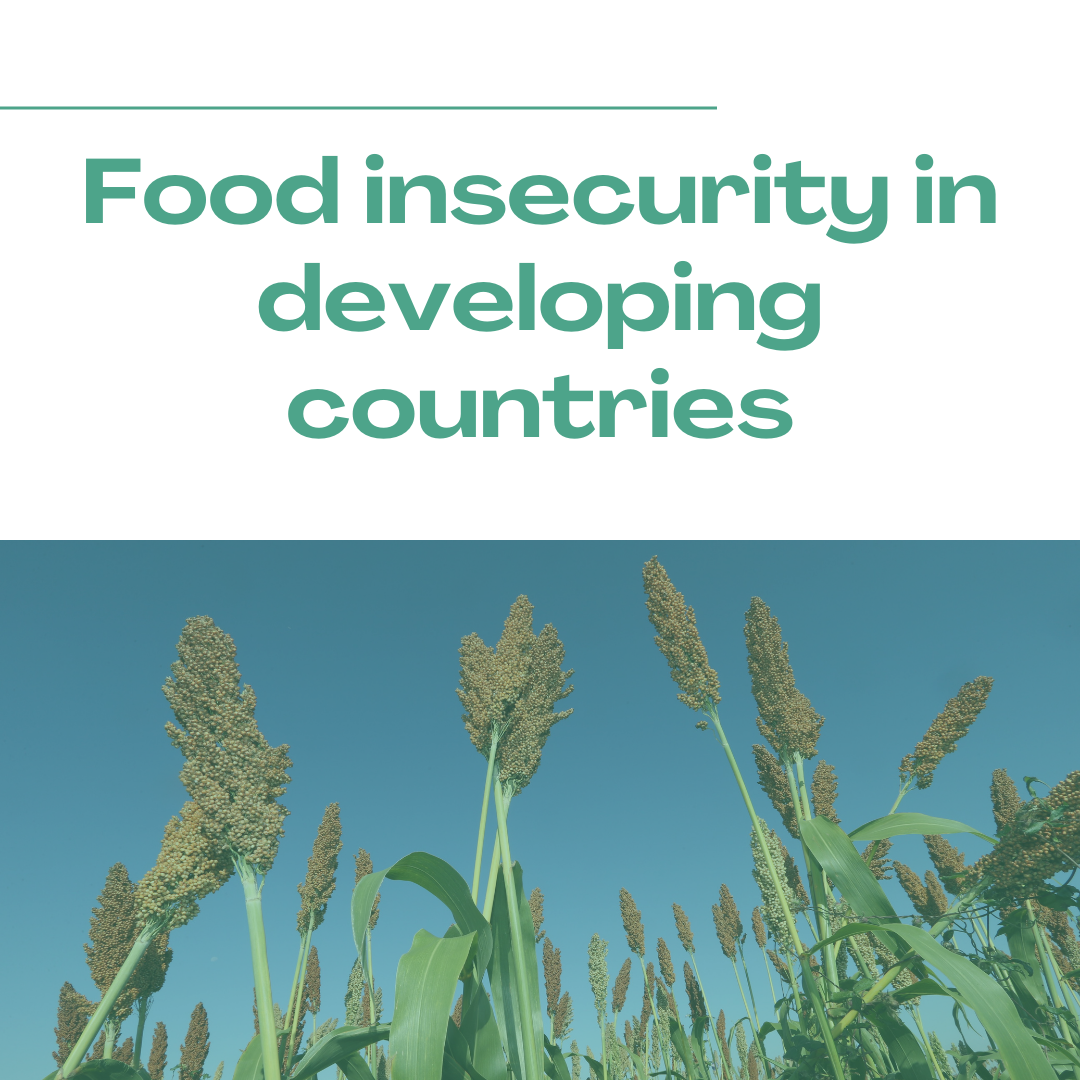 Emma Keesling is dedicated to fighting food insecurity and promoting sustainable agricultural practices. She worked on a research project focusing on Rwandan food insecurity and taught communities in Kenya how to sustainably grow food and meet their nutritional needs.
Emma Keesling is dedicated to fighting food insecurity and promoting sustainable agricultural practices. She worked on a research project focusing on Rwandan food insecurity and taught communities in Kenya how to sustainably grow food and meet their nutritional needs. 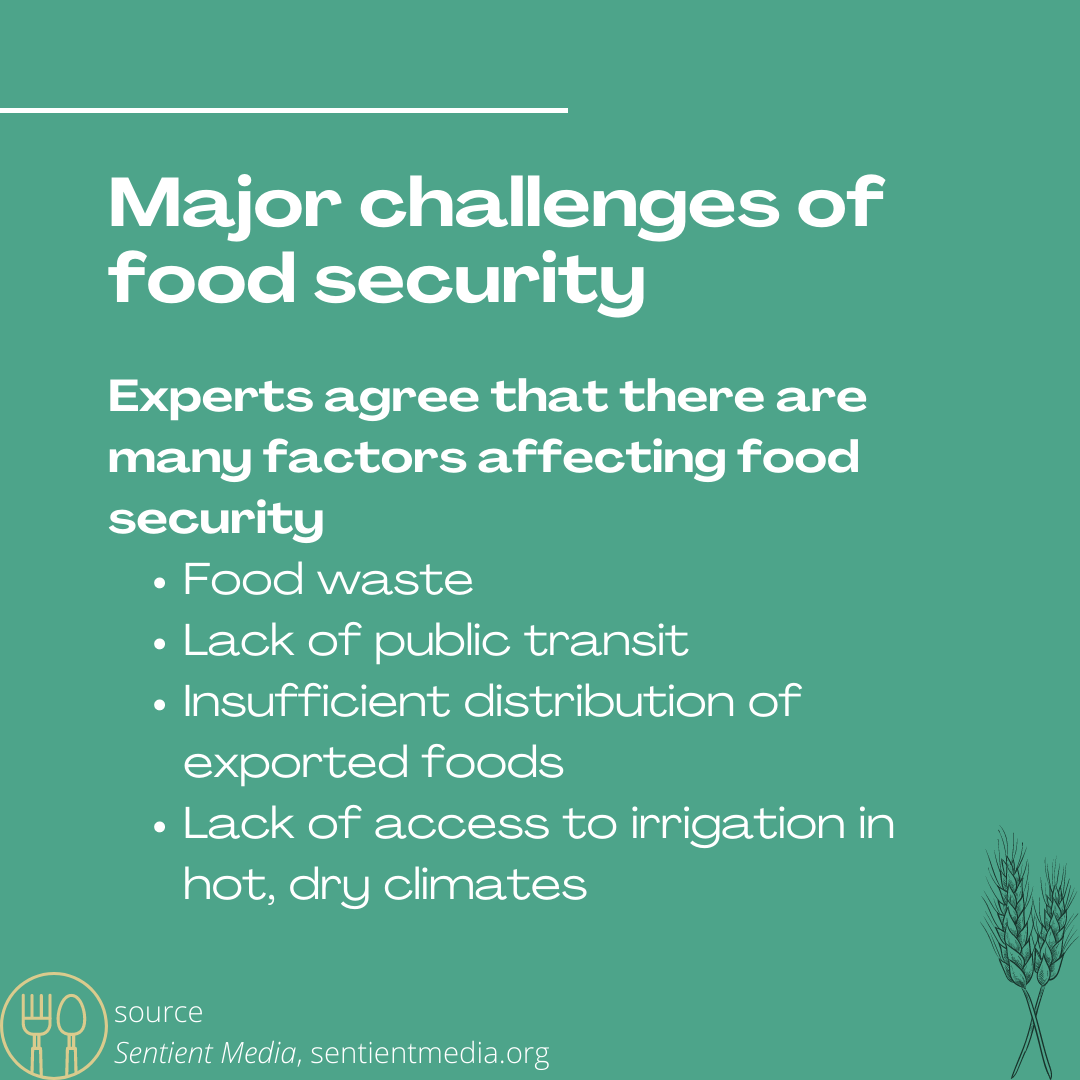 Major challenges of food security
Experts agree that there are many factor affecting food security:
Food waste
Lack of public transit
Insufficient distribution of exported foods
Lack of access to irrigation in hot, dry climates
Major challenges of food security
Experts agree that there are many factor affecting food security:
Food waste
Lack of public transit
Insufficient distribution of exported foods
Lack of access to irrigation in hot, dry climates Find out more
Purdue Agricultural and Biological Engineering
Purdue International Programs in Agriculture
Olivia Kuhn earned her bachelor's degree in agricultural communication in 2022 from Agricultural Sciences Education and Communication
